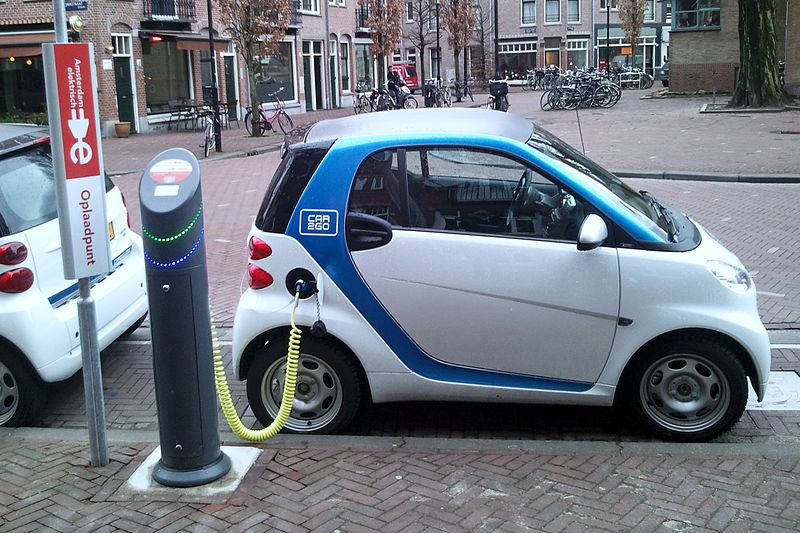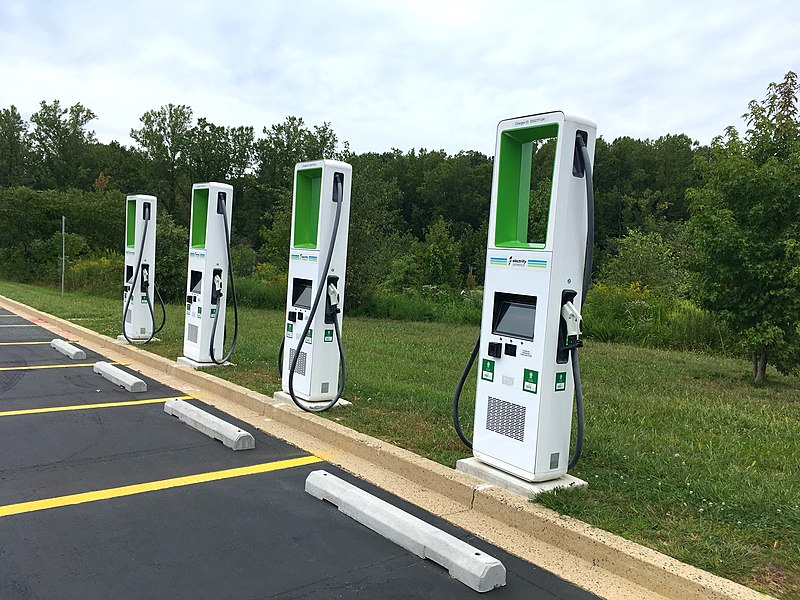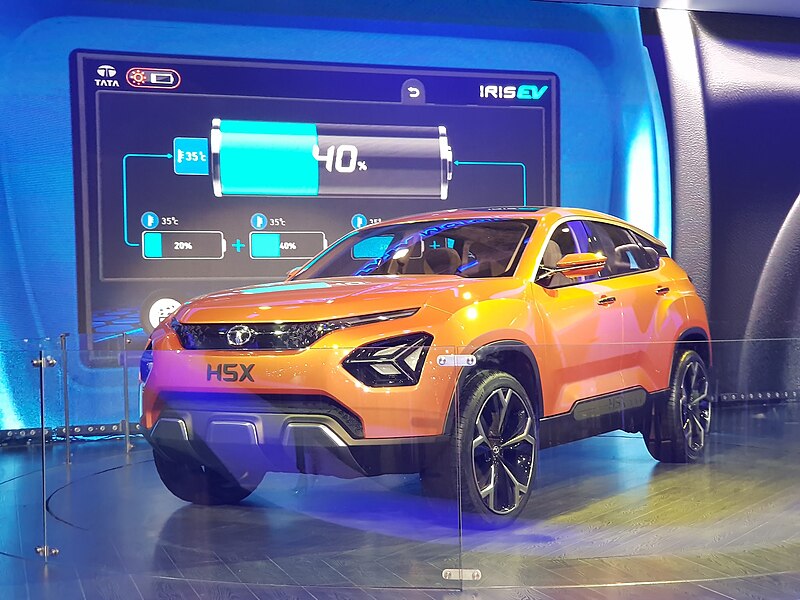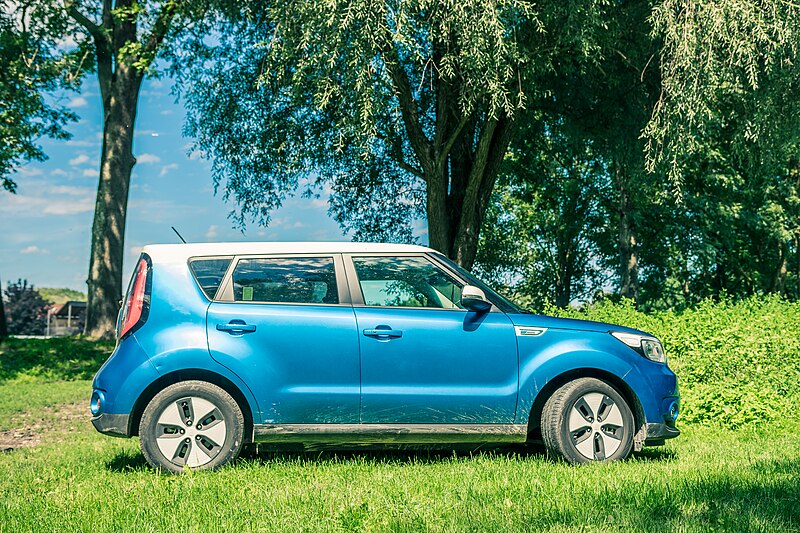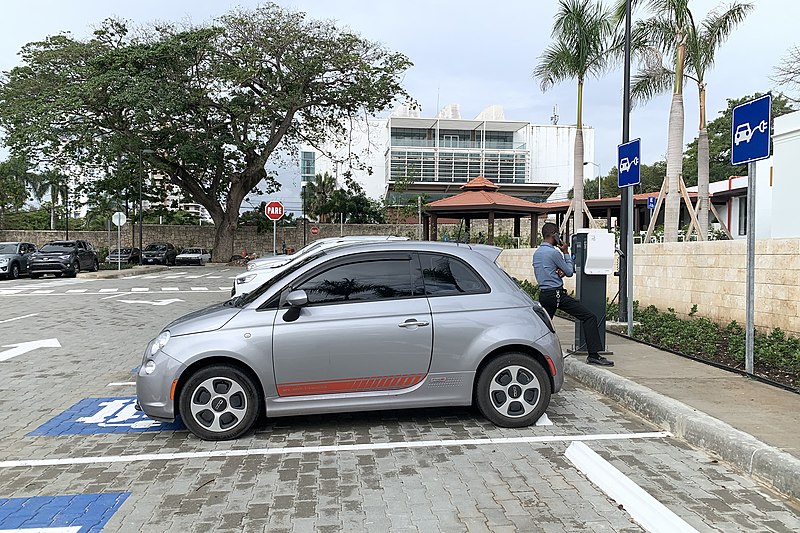The electric vehicle movement is here, and it’s not going anywhere. From the early Tesla models up to today’s Mustang Mach E, electric vehicles show us what the future of personal transport looks like. More than that, they’re revolutionizing the transportation industry at large, to the benefit of a planet besieged by fossil fuel emissions. Despite all the good things about electric cars, however, many people still have reservations about them. Here, we dive into some of the common myths about the drawbacks of driving an electric car—and debunk them!
30. You Can’t Replace The Battery
So far, the batteries in electric vehicles don’t last a lifetime. As an example, the Toyota Prius battery has an estimated lifespan of about 8-10 years, or 150,000 miles. Consumer reports indicate that they typically outlast this range, but if you do not to replace it, drivers fear that they are expensive and there aren’t many mechanics who specialize in this. Except: more and more mechanics are learning how to service EV batteries, and the fuel cost savings, tax credits, and state incentives can help to offset the replacement cost overall.
29. Only Foreign Car Companies Make Them
While this hasn’t been true for a while, it’s surprising how many people still believe that you can only get an electric vehicle from Honda or Toyota. (Both these companies do manufacture cars stateside, but let’s not haggle over details.) For diehard loyalists who want an American brandname on their bumper, their are still plenty of options, even if you’re not ready to spring for a Tesla. Ford, Chevy, and GM all have an EV offering, and soon there will be even more to choose from. In January 2020, GM announced that it will transition its lineup to all-electric in the coming years. Shouldn't be hard, considering they already made one, the EV1, in the 90s.
28. They’re No Good In An Apocalypse
We’re not sure who started this rumor, but there must be some serious EV haters out there who thought it would deter interest. No, electric vehicles aren’t built like tanks and if there’s no energy flowing through the grid, you can’t charge them. However, word is that the future is in solar-powered charging stations anyway, which means your electric vehicle has more of a chance of being useful in an apocalypse than a regular car. Besides, you’d only be able to use a gas-powered can for four years after the apocalypse—the average shelf life of most brands of gasoline.
27. You’re Out Of Luck In A Blackout
A power outage means you’re stuck for a ride, but only if your electric vehicle doesn’t have a charge. The latest generation of EV batteries can take you upwards of 250 miles per charge. When the car is parked, it only loses about 2-5 miles a week. At that rate, even in the worst case scenario, you could go without a charge for almost a year without getting marooned. And if the blackout lasts that long, well—see above.
26. Electricity Isn’t Free
Surprise! Electric cars use electricity. Whether you use a charging station or power up at home, this incurs a cost. But the last time we checked, gas wasn’t free, either. So let’s take a closer look. It turns out that charging your electric vehicle at a charging station is about $5. The costs when you charge from home are even less. Five dollars for 250 miles of driving is undeniably cheap.
25. Can’t Save You From Traffic
Or can they? Some major highways have HOV (high occupancy vehicle) lanes that can bypass traffic during rush hour. This is known as the carpool lane, but is also available to electric car drivers. Even if your electric car is carrying only you, you're entitled to use this special lane. For anyone who’s stuck in a long commute for work, the time you’ll save is worth it all on its own.
24. They’re… Too Quiet?
One of the funniest complaints we’ve heard about electric vehicles is that they sneak up on you. It can be unnerving to turn around and discover a sleek sedan is right behind you, and you didn’t even hear it purring. For drivers, it can take some getting used to, especially if you love to hear the engine rev. But these days noise pollution in cities is as frequent a problem as air pollution, so why not cut back on both?
23. Lack Of Charging Stations
It’s going to take a while to see a charging station on every street corner—but not as long as you think. While some cities haven’t caught up yet, they aren’t hard to find in New York, LA, and Phoenix. As more people drive them, charging station for electric vehicles will become more prevalent, and pretty soon they’ll be as common as gas station.
22. Fewer Options
Gas-powered cars have been around for over 100 years, which means there is a century of innovation backing them up. From a consumer perspective, this means lots of different models and design options to choose from, with an infinite variation of features. EV options are comparatively few, but that’s bound to change as more of them hit the market.
21. Less Horsepower
Perhaps the early electric vehicles were less dominant under the hood, but these days they can compete with any powercharged gas-guzzler out there. Thanks to brushless electric motors that deliver unfettered power instantly and efficiently, acceleration is no problem for electric cars. In fact, some of the latest electric models have been breaking world speed records. High speeds will consume more battery power, but the same physics are at work with gas-powered engines, which consume more fuel at faster speeds.
20. Range Anxiety
Range anxiety is real, and it’s the top concerns for most new EV owners. Most affordable electric cars on the market have a bit more than a 130-mile-range on a single charge. Higher end models, like Teslas, will double that number. This seems like a major pitfall when you consider that gas-powered vehicles can deliver 500+ miles on a single tank, but when was the last time you drove that far? For most drivers, the EV range is more than enough, and it’s only going to get better in the coming years.
19. Long Charging Times
The charging time is another are where electric cars make their drivers worry. To fully charge the batteries, you need to connect your vehicle to a power source and wait for the battery to charge. Most drivers will plug them in at home so the vehicle can charge overnight. In most cases, a full charge takes several hours, but that number is getting progressively lower. Newer models with supercharging abilities, like those by Tesla and Porsche, can recharge their batteries in just 20 to 30 minutes. This is still longer than filling up with gas, but a small inconvenience when measured against the benefits.
18. Road Trip Complications
A shorter range and long charging times can turn your road trip plans into a headache. With an electric vehicle, extra consideration has to go into knowing when and where you’ll be able to get powered up. For this reason, you might second-guess going electric if you like to travel. However, as their ranges improve and more charging stations show up, EVs will make travel a lot more accessible. It will be cheaper to drive cross-country, and you can do so with the satisfaction of knowing you’re not adding harmful emissions to the places you visit.
17. They’re City Cars
While the EV life is already taking off in urban areas, it’s not so popular in the country. This makes a certain amount of sense, as short-range city driving is what EVs are best at, and there are more charging stations to be found. But as ranges get longer and charging station become more prevalent, it won’t be long before you’ll see farmers riding electric-powered tractors, pickups, and heavy machinery.
16. They Still Impact The Environment
Electric vehicles have zero gas emissions when you drive them, but they do produce waste during the manufacturing process. This is just a given in our industrial society—everything you touch, eat, and wear has probably had a not-so-great impact on the environment. In this case, it’s worth having a bigger picture perspective on the overall benefits of moving from gas to electric. And the benefits are huge.
 Regional Queenslander via Wikicommons
Regional Queenslander via Wikicommons
15. They Still Use Energy
So, energy still has to come from somewhere. The electricity that powers EVs is generated at power plants, which do produce pollution to some extent. However, this is another sector where technological innovation is pioneering the way to cleaner energy. Some day, your EV will be powered by electricity that came from the sun or the wind, which is a pretty amazing thin to imagine.
13. Costs More To Repair
A lot of drivers are worried that if they invest in an electric vehicle, they’ll also be on the hook for expensive maintenance and repairs. It’s true that, at the moment, not every mechanic knows how to fix these special cars. However, that doesn’t mean getting them serviced has to cost extra. The prices for getting an oil change, switching out your summer tires for winter ones, and other common issues are the same for gas-powered or electric. It’s only with the battery that the cost could be high for a repair, but it will get cheaper as the market for qualified EV mechanics grows larger, and therefore more competitive.
12. They’re Heavy
While this isn’t something that most drivers care about, it does get flagged as an EV drawback once in a while. The average car today weighs about 2,800 lbs., while the average EV weighs about 3,900 lbs. Why the difference? It’s because of the lithium batteries. Even on smaller models like the Kia Soul EV, the electric batteries add around 450 extra pounds of weight. On some of the high-end models like the Tesla Model X, the battery weighs in at over 1,000 lbs. While it’s true a heavier vehicle means more tire wear, more energy consumption, and other maintenance, most car experts will tell you that the 1,000 lb. difference doesn’t actually have that much of an impact here.
10. Low Top Speeds
When drivers complain about low EV top speeds, we have to wonder how many speeding tickets they have. Although there are some electric supercars with record high speeds, like the Rimac Concept One, most regular everyday EVs have a hard limit. The top speed of the Golf E or Kia Soul EV is around 100 mph, for instance. This has been a concern for European drivers where the speed limit on the highways is much higher than in the states. Like many of the other issues on this list, however, this problem is disappearing with later models.
9. Bad Highway Performance
Because of how EV batteries work, their highway consumption is often much higher than their city consumption, around 50% more. This is because high speeds use more juice, but also because of something called regenerative braking. Regenerative braking is the process by which the car regains some energy while stopped or coasting. The lower speed limits and more frequent braking of city driving means the battery lasts longer. It shouldn’t be news to anyone, however, that gas-powered vehicles use more fuel in both scenarios.
8. High Heavy Load Consumption
Cybertruck, anyone? The truth is, long-haul truckers are going to have to wait a while before their rigs are equipped with electric batteries. Because the energy consumption under a heavy load is excessive, modern lithium batteries aren’t quite up to the challenge yet. The thing is, passenger cars outnumber commercial vehicles on the road today by a lot, about 5:1. So replacing passenger vehicles with EV should be the priority right now, and commercial vehicles will get there in due time. Tesla had plans for them already.
 Steve Jurvetson via Wikicommons
Steve Jurvetson via Wikicommons
7. They Give Up Your Location
This one’s for all the conspiracy theorists out there. Though any vehicle with an in-car GPS system is going to keep track of the car’s location, for some reason this has become a sticking point for EV skeptics. Some higher-end electric vehicles, like those released by Audi or Tesla, come with advanced computer systems that enable the autonomous driving feature. Even when the car’s not driving itself, these programs collect information about driving habits, locations, charging points, and so on, in order to improve future functionality. At this point, we have to accept that Big Brother is watching us, no matter what kind of car we drive.
6. Not Much In The Looks Department
EV design has hit some stumbling blocks along the way, but so have regular cars. This point is really a matter of taste more than anything, and you can’t please everybody. In the early days of EV, a lot of people didn’t like the utilitarian look of most electric vehicles. This aesthetic has continued up until today, with the Golf E and Kia Soul EV as good examples. However, as more electric cars hit the market, they’re sure to check a lot more boxes in the looks department. And hey, some people think the Cybertruck looks really cool.
4. They Aren’t Global
Up until recently, EV tech was limited to just a few first world countries and markets in the world. It’s true that some places will take longer to catch on, especially in places with struggling economies around the world. But this is how it goes with every new technology. As people see the benefit of EV and demand grows, governments will create incentives for manufacturers to produce electric cars at home. It’s a global movement, skeptics, get used to it.
3. The Public Has Reservations
Although Tesla sold over 300,000 cars last year and other manufacturers are also reporting growth in production numbers, the average Joe still consider EVs to be a passing fad. We have some hard facts that disagree with that, such as the world’s supply of fossil fuels drying up by 2050. No, EV is a growth market and it will continue to be. Just like cars replaced horses, gas-powered vehicles will soon be a thing of the past.
2. You Need A Second Vehicle
Some people worry that an electric vehicle won’t meet all their needs, making a second vehicle necessary. But as we’ve shown above, electric vehicles are only getting better, cheaper, and more popular by the day. The situations in which you would need a second vehicle are few, and they’re the same situations in which you would need two vehicles anyway, like if you wanted an economic car to get to work and a heavy load pickup for recreation.
1. Lower Resale Value
Because the technology is new and still evolving, some drivers worry that the market will outpace their car’s resale value. In our research, however, we discovered the opposite was true. Compared to gas-powered cars, EVs sold for closer to their original price tag. This could be evidence of a growing demand for used electric vehicles as drivers replace their older, gas-powered models. More good news for early adopters of EV technology.


